There is nobody happier than ‘Pop’, as we called him, not to be around to celebrate his 100th birthday. He didn’t like growing old just as he didn’t like playing golf anymore after his heart attack at 52 took away the magical power in his huge hands that won him 40 Championships.
Like many of the great men I have met over the years, some grow old gracefully like the great Henry Cotton and some like ‘Uncle George’ Blumberg (Gary Player’s mentor), grew angrier at ‘father time’ as they got older. Pop, however was always optimistic and positive, as his mind was younger than his weathered and worn body by the time he turned 75.
We (the family) worked on making sure he had projects to keep him focused and active in the last chapters of his life. The three most significant were, being the first Irishman to be the Captain of the R&A in 1991. Designing the Old Head with Ron Kirby and owner John O’Connor, and writing a book ‘Breaking 80’ about his incredible life with his friend Dermot Gilleece.
The book in particular was transformational for him personally as for nearly 80 years he had guarded a hidden truth about who he really was, Joe Waters from Inchicore and not Joe Carr from Sutton. It is refreshing today to read the opening paragraph on Joe Carr on Wikipedia:
“Joseph Benedict Carr (18 February 1922 – 3 June 2004) was an Irish amateur golfer. Carr was born in Inchicore, a suburb of Dublin, Ireland, to George and Margaret Mary “Missie” Waters (the fifth of seven children). At 10 days old, he was adopted by his maternal aunt, Kathleen, and her husband, James Carr, who were childless and had recently returned home from India. The Carrs had just been appointed steward and stewardess of the Portmarnock Golf Club, allowing young Joe to play golf from a very early age.”
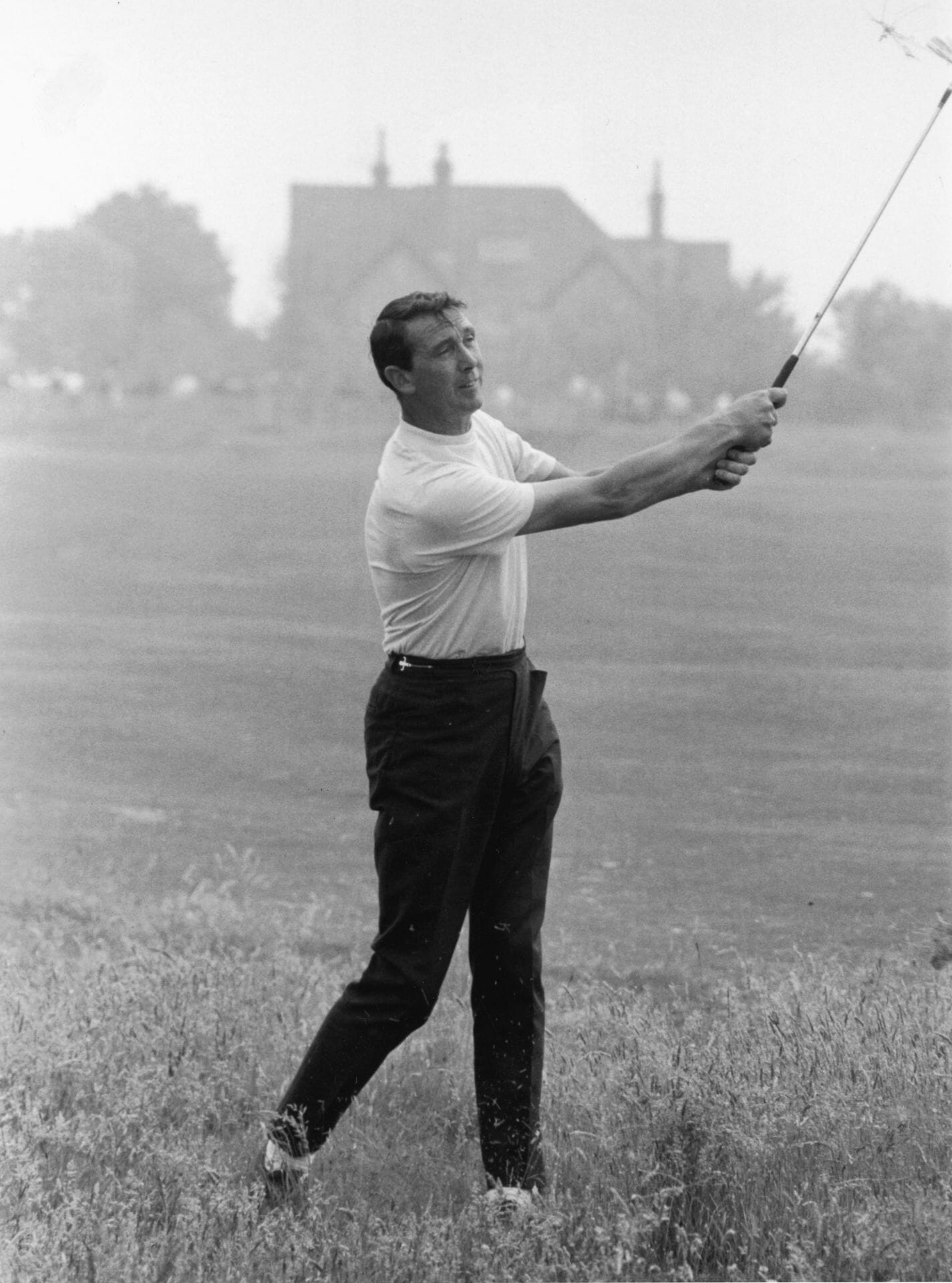
We never knew, it was never discussed at home. He carried it deep within himself all his life. We have Dermot to thank for his stubborn refusal not to keep that truth buried.
I was probably the most fortunate of my siblings to get to know the man Joe Carr when he was still winning Championships. We travelled together playing golf for Sutton, Leinster & Ireland when he was still competitive right up to 1969.
I watched in awe how this humble man was revered as a superstar of his day both at home and abroad. I watched his opponents when I caddied for him thanking with broad smiles for the 7&6 (dog license) thrashing he had just inflicted on them. I watched him lose more graciously than when he won.
I watched him receive accolades and awards such as the Bobby Jones Award for his Sportsmanship with grace and humility. I watched how much fun he had with his friends shooting, fishing, sailing, playing snooker, backgammon, poker and golf. I watched how the great players of the world were attracted to his fun personality and love of life and betting. Jones, Cotton, Nicklaus, Palmer, Snead, Player to mention but a few.
Behind this man was his rock and wife Dor Carr, our mother. When I reflect on who and what Joe Carr had become in his day, an awful lot of the man and the brand Joe Carr, was a result of what my mother contributed to their partnership.
As I learned later in my career working for Mark McCormack, who managed many great players, my mother managed his career. She took care of everything behind the scenes to allow my father to flourish and become the legend he became.
This included running a household with 6 kids and all their friends, letting him work his 9-5 job, writing all his speeches, managing all his travel and sending Christmas cards of a picture of our family to over 500 people annually all over the world.
To this day I treasure the Christmas card I get every year from Barbara and Jack Nicklaus with a similar family photo. I think the origin of this came from my mother as Jack used to mention our Christmas cards when I first met him in 1967. The bond between the Nicklaus’s & Carr’s is demonstrated by Jack’s induction of JB into the World Golf Hall of Fame in 2001 and when he came to open the new Sutton Clubhouse on that candle lit night in 1990.
Joe & Dor were a formidable pair. I remember my mother quietly walking the fairways at match play championships with her small umbrella seat-stick. They had this understanding between them that when he got 3UP she would head in to make the sandwiches in the car before the afternoon match. ‘No man alive can win four holes off me,’ he commented later when I questioned him on it.
In the South of Ireland, the last Championship he won in 1969, I was caddying for him after not qualifying for the match play stages. “I will show you how easy it is to win one of these,” he explained on the first tee of his first match. Later in the week having crushed every opponent along the way, he was three down after five holes to his great pal, Noel Fogarty in the final.
As we walked to the Dell (6th) hole tee box I remember stopping him with fright in my eyes and asked him about being three down and how it worked that he was on the receiving end of his own ‘understanding’.
“If I don’t lose another hole, I will win by two and one,” he said with quiet calmness.
He didn’t quite keep his word and won on the 18th! His strategy of not panicking and chasing at such a time in a match was classic of the great ‘mano de mano’ champions like JB and Seve, whom I was later to manage.
He taught me everything he knew about golf. He was a truly one of the great shot makers with immense raw power. Many times when playing with him or caddying I would walk to his ball in the deep, thick rough or gorse, look at it and think to myself ‘wedge to get it back on the fairway’ is the best I could do.
He would stroll up casually take one look and reach for the then small pin headed persimmon 4 wood. The shot would resemble a mini earthquake, a mauling of the earth with such force that the ball had no option but to spring into flight. It was a sight to behold and a sight that many times broke the heart and mind of his shell-shocked opponents.
It was the revelations later in life that probably had the most effect on him. As a boy growing up on Portmarnock links, he addressed his father Commander Carr, the club steward as ‘Sir’. They only ever shook hands, no hugging.
He was nearly 80 when we finally broke him down with a series of ‘practice sessions’ led by John and Sibal my sister, on how to hug his children, and then grandchildren. We finally cracked him and he got it.
The final revelation for him came in a Limerick hospital when, as he used to say, he was ‘in the departure lounge’ and literally visited death’s door with Sibal holding his hand in the middle of the night telling him it was OK to go if he wanted to. We all had spent several days surrounding him with the power of ‘family love’.
The next morning, I was first in to see him. He was sitting in the chair beside the bed with his eyes bulging with life and energy behind his oxygen mask. He motioned to me with his hand urgently to come close to him to listen.
“I didn’t know the love – I can’t leave now,” he wheezed.
The force of the concentrated circle of love of his family had finally cracked through the impenetrable barriers forged from his time. I have known many men over the years, some JB’s friends, who passed without ever experiencing that true love of their family. Sad.
My father was a lucky man which he acknowledged all his life but never more so than in his later years when he married Mary Carr. Mary and he shared fun and love together daily and she looked after him with all the way to the end.
He had a great and full life and is remembered by all those who knew him well with a smile and a twinkle in their eyes, just as he would have wished.
Happy Birthday Pop.
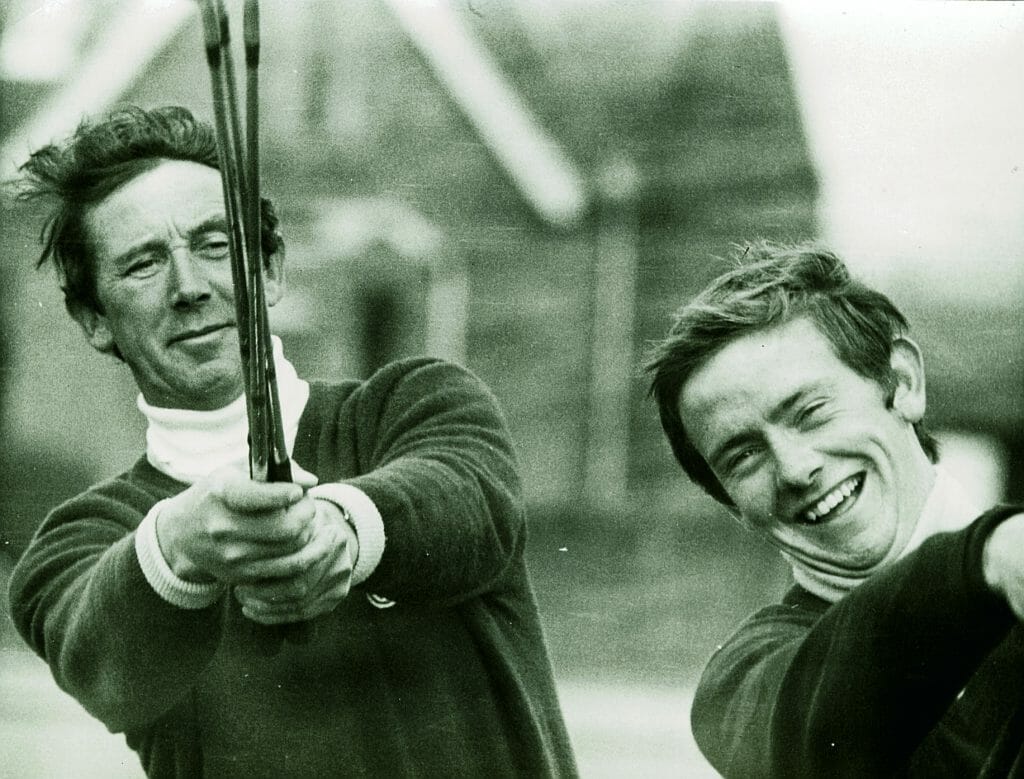

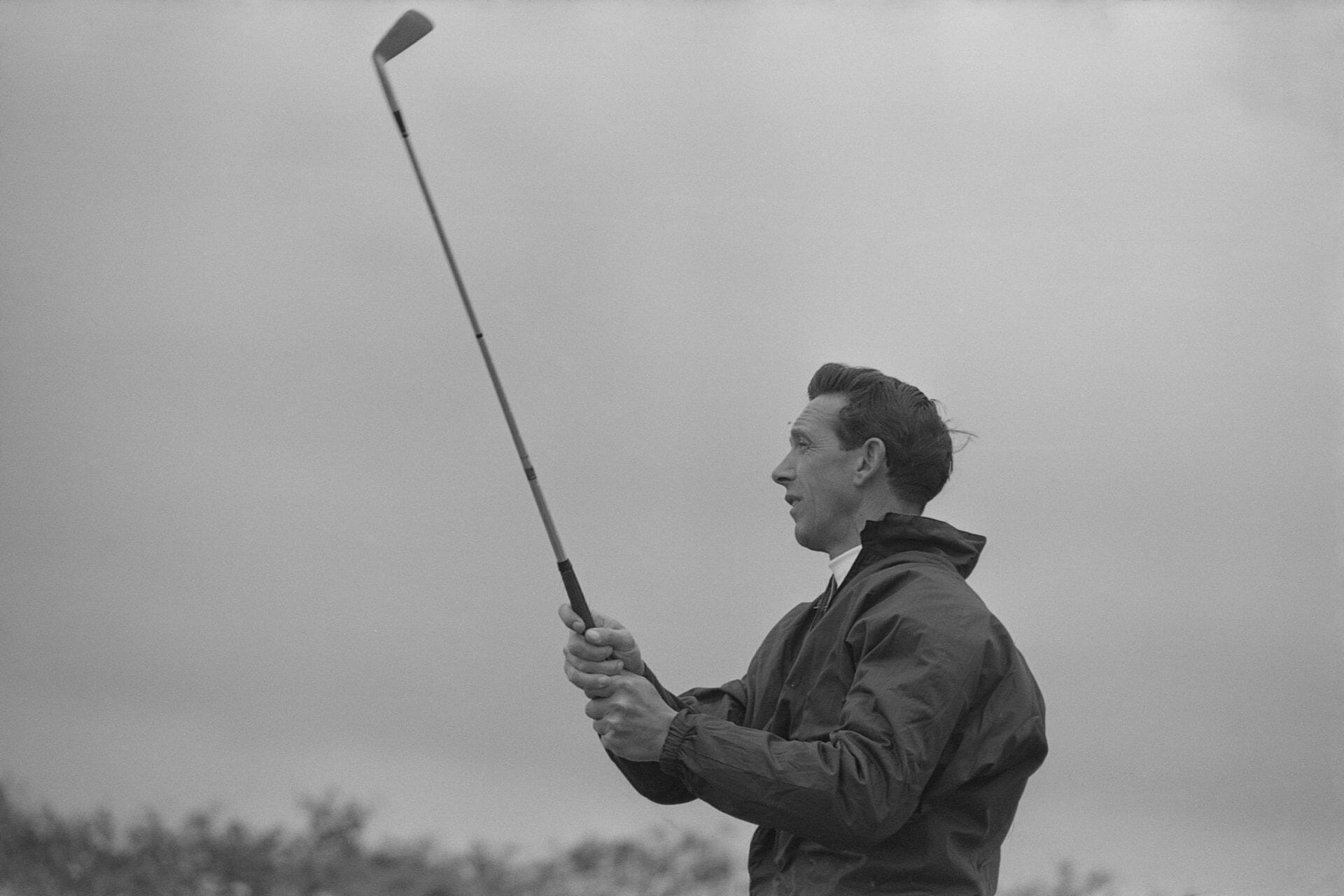










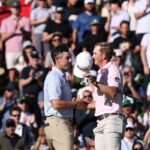

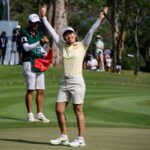









Leave a comment